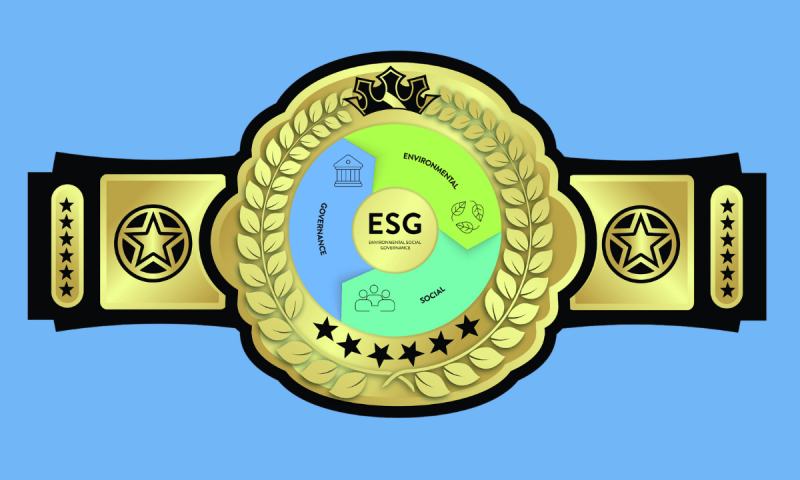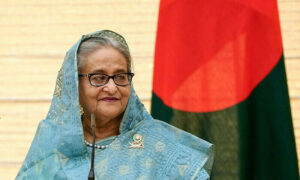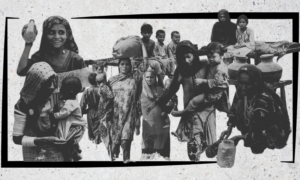The textile sector was one of the earliest adopters to implement ESG public disclosures to meet the conditions set by their customers, mostly from Europe and the US. In 2015, Artistic Milliners, in collaboration with Gap Inc., was the first Pakistani company to embark on the Personal Advancement and Career Enhancement (PACE) life skills training programme, which educates women on subjects such as communication, problem-solving and legal and financial literacy. According to the company’s website, Artistic Milliners is the first fair trade-certified factory in Pakistan.
Interloop, one of the largest global suppliers of hosiery, began to publicly disclose its ESG performance in 2018. In 2021, 26 Pakistani companies pledged to reduce their emissions and signed up for ‘The Business Ambition for 1.5°C’ campaign ahead of COP26. The majority of signatories are among the leading textile manufacturers in Pakistan. ‘The Business Ambition for 1.5oC’ campaign was launched in the lead-up to the 2019 Climate Action Summit to encourage companies to set science-based targets aligned with 1.5°C. According to the evaluation report published in March 2024 by Science Based Targets initiative, the campaign succeeded in encouraging science-based target setting, with the majority (84%) of participants doing so.
In June 2024, the Securities and Exchange Commission of Pakistan (SECP) issued voluntary ESG disclosure guidelines for publicly listed companies. The guidelines aim to promote the implementation of responsible business practices and transparency among listed companies. This first attempt by the SECP to provide listed companies with a directional framework for ESG reporting is a step in the right direction. Earlier, the Pakistan Stock Exchange (PSX) also unveiled the PSX Primer on ESG reporting guidelines. The publication of reporting guidelines from financial regulators such as the SECP and PSX is proof in itself that there is a viable business case for ESGs in Pakistan.
The World Bank’s ‘Global Risk Profiling Report’, released earlier this year, provides an insightful perspective on the global implementation of ESG principles. The index ranked Pakistan at 161 with an overall score of 63. This suggests a dire need for Pakistan to enhance its efforts in aligning with ESG principles and improve its overall risk profile. According to the UN SDGs Index 2024, Pakistan is ranked 137th out of 166 countries, with a score of 57.02 – a decline from 128th position in 2023 and 125th position in 2022. As the fifth most populous country in the world with a mere 0.9% contribution to global carbon emissions, Pakistan is among the worst impacted by the environmental risks associated with climate change. Some private sector companies have already aligned their CSR and/or sustainability agendas with the UN SDGs.
In this respect, Pakistan’s private sector can play an active part simply by aligning its objectives with Pakistan’s NDCs (which are aligned with the SDGs). Through active coordination between the private sector and government agencies, the environmental and social fronts can be achieved.
Key entities from the banking, energy, engineering, FMCG, insurance, shipping and telecom sectors should consider directing their investments to ESGs and become ‘SDG champions’ to accelerate impact.
The best thing is that the impact of ESGs is multifaceted. ESG strategies can be developed based on SDGs and relevant local initiatives. This would trigger green job creation in areas dedicated to sustainable business practices and responsible governance within companies. However, with mandatory reporting requirements (if implemented), businesses may need to either upskill their resources or hire additional employees in areas such as environmental risk management and auditing. However, this investment would be counterbalanced by increased foreign investment due to the growing global inclination to invest in green funds.
Another aspect is that consumers are increasingly looking for products and services that are good for the planet. A good ESG reporting (and not greenwashing) system will help companies build trust and accountability, satisfy regulatory requirements and attract investment capital. The focus on social responsibility can improve a company’s reputation and stakeholder relationships. The fact is that adhering to ESGs has the potential to shape the future of business practices in Pakistan, as they can expect to see growth in new industries such as renewables. To fully realise the potential of ESG-driven growth, the government, businesses and individuals must work together to develop and implement a mandatory legal framework that encourages sustainable development and delivers on-purpose-led growth for Pakistan.
Mariam Durrani is a brand builder with a passion for sustainability.
Join DawnMedia’s Breathe Pakistan initiative to combat climate change.
The best thing is that the impact of ESGs is multifaceted. ESG strategies can be developed based on SDGs and relevant local initiatives. This would trigger green job creation in areas dedicated to sustainable business practices and responsible governance within companies. However, with mandatory reporting requirements (if implemented), businesses may need to either upskill their resources or hire additional employees in areas such as environmental risk management and auditing. However, this investment would be counterbalanced by increased foreign investment due to the growing global inclination to invest in green funds.
Another aspect is that consumers are increasingly looking for products and services that are good for the planet. A good ESG reporting (and not greenwashing) system will help companies build trust and accountability, satisfy regulatory requirements and attract investment capital. The focus on social responsibility can improve a company’s reputation and stakeholder relationships. The fact is that adhering to ESGs has the potential to shape the future of business practices in Pakistan, as they can expect to see growth in new industries such as renewables. To fully realise the potential of ESG-driven growth, the government, businesses and individuals must work together to develop and implement a mandatory legal framework that encourages sustainable development and delivers on-purpose-led growth for Pakistan.
Mariam Durrani is a brand builder with a passion for sustainability.







